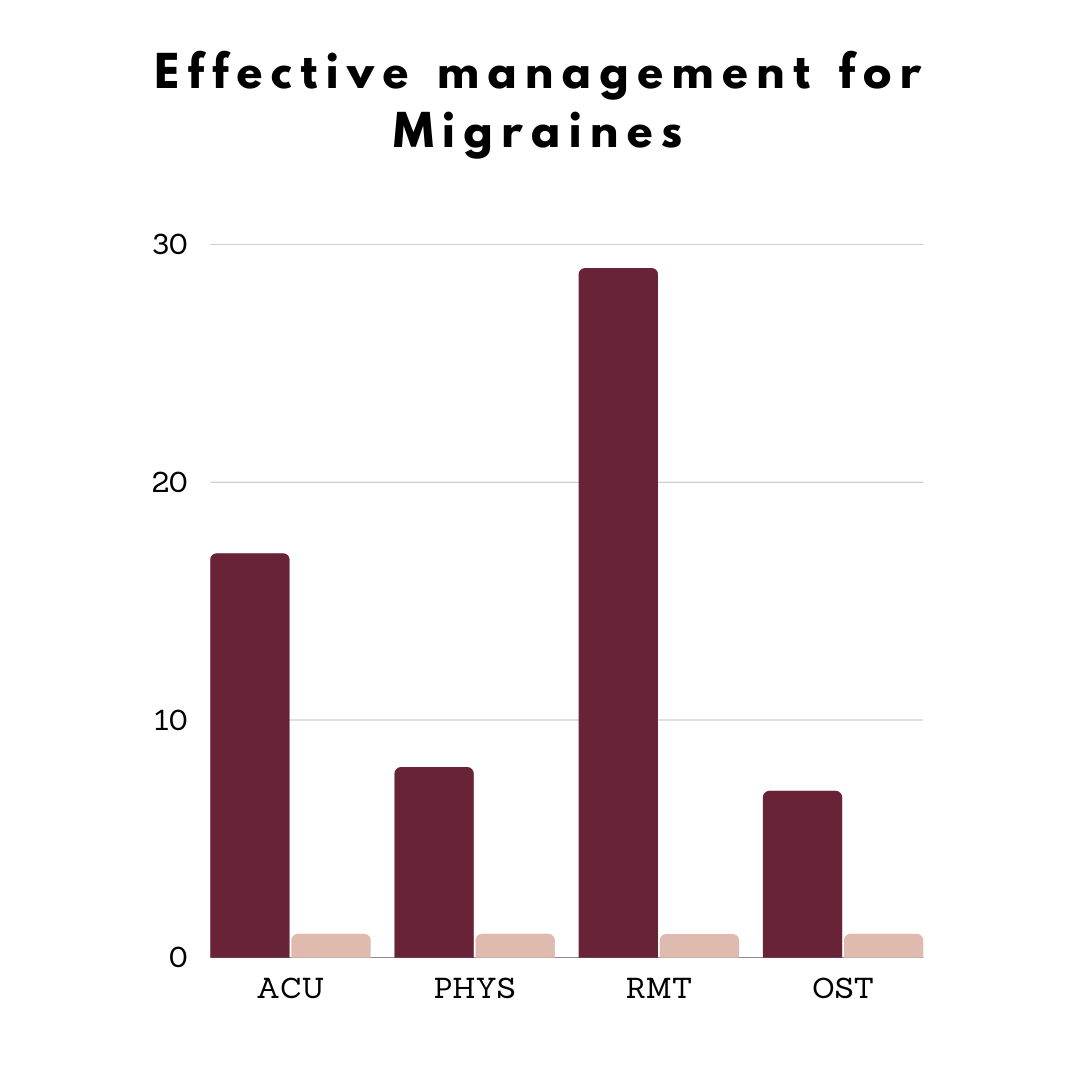MIGRAINES
Definition
A migraine is a throbbing headache that can be accompanied with an aura. Diagnosis has evolved over the last two decades with the predominant factor being a track of historical occurrences of headache attacks. Unfortunately it is difficult for patients to remember the number of, and timing of, headache attacks which makes diagnosis quite difficult. It is suggested that 2% of the population suffers from migraines, with a growing progression from episodic migraines to chronic migraines.
LITERATURE - DIAGNOSIS AND TREATMENT OF migraines
In some instances patients will demonstrate both a structural and functional disparity, lending itself to a proper diagnosis and treatment, but in most cases patient diagnosis is quite anecdotal. There are 7 types of migraines:
Migraine with aura (complicated migraine):
Chronic migraine
Hemiplegic migraine
Retinal migraine
Vestibular migraine
Menstrual migraines
Brainstem aura
Those with migraines tend to also exhibit comorbidities such as chronic pain conditions, respiratory disease, and cardiovascular events, with migraines presenting before or after these other issues. Alongside, it has been shown that migraines are commonly associated with digestion and digestive health. For instance, migraines tend to be associated with GI disturbances such as diarrhea, constipation, GERD, and dyspepsia. Those with migraines also tend to exhibit signs of irritable bowel syndrome, celiac disease, or inflammatory bowel disease. As such, emerging research is looking at the gut-brain axis connection and the impact of gut dysregulation (dysbiosis) on migraines. More specifically treatment options may lend itself to focusing on the gut and seeing how it impacts migraines overall.
Generally, this interaction seems to be influenced by multiple factors such as inflammatory mediators, … gut microbiota profile, neuropeptides and serotonin pathway, stress hormones and nutritional substances. ~Arzani et al
Pharmacological treatment options for migraines are quite limited. Neuromodulators such as gabapentin and amitriptyline have had some success in regulating the symptoms associated with migraines. Moreover, treatment of comorbidities such as sleep and mood disorders also help with pain management.
Studies have shown massage therapy to be quite an effective treatment for patients with migraines, both for the management of symptoms associated with migraines and to reduce the occurrence of migraines. Several studies also show the efficacy of acupuncture on migraines. More studies are also now exploring the use of auricular (ear point) acupuncture for the treatment of migraines.
Survey Results
In accordance with the final statement above, our survey revealed that patients with migraines are already seeking massage therapy and acupuncture for treatment of symptoms. At the time we were not aware of the multitude or migraine subtypes which may have lent itself to some valuable insights if asked appropriately. For now we can assume that both treatment strategies are effective for these patients.
what they told us
Our survey shows that those with migraines are seeking massage therapy and acupuncture to manage symptoms and occurrence. For more information see our Survey Summary.
FEMADE APPROACH TO TREATING migraines
Here at Femade we certainly see a lot of patients with migraines. Anecdotally we know that patients are seeking massage therapy as a means of relaxation, stress management, muscle relaxation which undoubtably affects the brain stem, and to reduce the occurrence of their migraines. There are several methods and intensities that can be used based on the overarching goal.
We also have a number of patients seeking out acupuncture for the same - and different - measures associated with migraines. For functional issues such as muscle or nerve derived pain, we can place needles in the location where the pain is originating from; not in the locations that pain is felt per se. When patients seek acupuncture for migraines we often see that the root of the issue is hormones with or without a digestion component. Once we start treating these systems we often see the patient experiences relief from their migraines.
Lastly, understanding that migraines are largely accompanied by stress, sleep disturbances and mood disorders, we offer psychotherapy to address some of the root causes of stress, and stress management. We also offer peer support for a more casual mental health support outlet as well as virtual group support sessions to help build a community.
Resources
Gut-brain Axis and migraine headache: a comprehensive review. https://www.ncbi.nlm.nih.gov/pmc/articles/PMC7020496/
Chronic migraine: A process of dysmodulation and sensitization. https://pubmed.ncbi.nlm.nih.gov/29642749/
A critical review of manual therapy use for headache disorders: prevalence, profiles, motivations, communication and self-reported effectiveness. https://www.ncbi.nlm.nih.gov/pmc/articles/PMC5364599/
Auricular acupuncture for migraine. https://www.ncbi.nlm.nih.gov/pmc/articles/PMC7004684/


